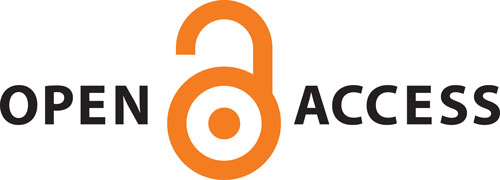Open Access Statement & Copyright Policy
Open Access Statement

All Brieflands Journals are open-access journals, meaning that all articles are available on the internet to all users immediately upon publication.
Benefits of open access for authors include:
- Free access for all users worldwide
- Authors retain copyright to their work
- Increased visibility and readership
- Rapid publication
- No spatial constraints
Copyright Policy of Brieflands Journals
Brieflands applies either the Creative Commons Attribution 4.0 International License (CC BY 4.0) or the Creative Commons Attribution-NonCommercial 4.0 International License (CC BY-NC 4.0) to all published materials, depending on the journal's policy regarding copyright. The type of license attributed to the articles when they are published depends on the journal in which the author chooses to publish. For more information, please refer to the Journal's list page.
The terms of the Creative Commons Attribution 4.0 International License (CC BY 4.0) allow for unrestricted use, distribution, and reproduction in any medium, as long as the author and original source are properly cited.
The terms of the Creative Commons Attribution-NonCommercial 4.0 International License (CC BY-NC 4.0) allow for copying and redistribution of the material for noncommercial use, provided that the original work is properly cited.
How can I receive permission to re-use a PDF or part of it?
Method 1)
To use the online production of Brieflands articles (partially or totally), including a figure, table, image, or a PDF, please contact Copyright.com and ask for permission.
If you need to re-use any material, kindly note that you have to pay the royalty fee to Brieflands via CCC [Copyright licensing, content & software solutions]
Method 2)
Besides, you can refer to the HTML full text of an article and, in the top-right pane, click on "Request Permission." Then you will be redirected to CCC.
Intellectual property
Rights granted to the author:
In this case, authors have the right to:
Share their article in the same ways permitted to third parties under the relevant user license (together with Personal Use rights) so long as it contains a CrossMark logo or publisher logo, the end-user license, and a DOI link to the version of record on any other sources.
Retain patent, trademark, and other intellectual property rights (including raw research data).
Proper attribution and credit for the published work.
Personal Use: Use by an author in the author's classroom teaching (including distribution of copies, paper or electronic), distribution of copies to research colleagues for their personal use, use in a subsequent compilation of the author's works, inclusion in a thesis or dissertation, preparation of other derivative works such as extending the article to book-length form, or otherwise using or re-using portions or excerpts in other works (with full acknowledgment of the original publication of the article).
Permitted Scholarly Posting: Voluntary posting of a published article by an author on open websites for Commercial Use or Systematic Distribution is not permitted. Deposit in or posting to subject-oriented repositories (such as PubMed Central), or institutional repositories with mandates for frequent postings, is allowed only under specific agreements between the Publisher and the repository, agency, or institution , and only consistent with the Copyright Owner's policies concerning such repositories.
Rights granted to the Publisher
For open-access articles published in proprietary titles, the Publisher is granted the following rights:
- The exclusive right to publish and distribute an article grants others rights, including for commercial purposes.
- The right to provide the article in all forms and media so the article can be used on the latest technology, even after publication.
- The authority to enforce the rights in the article, on behalf of an author, against third parties, for example, in the case of plagiarism or copyright infringement.